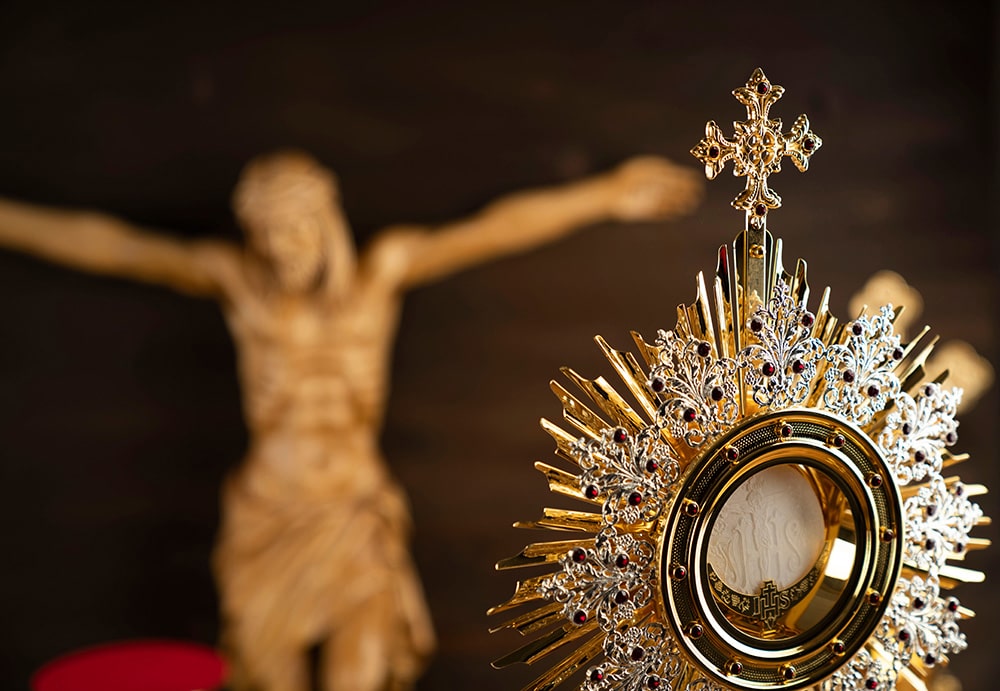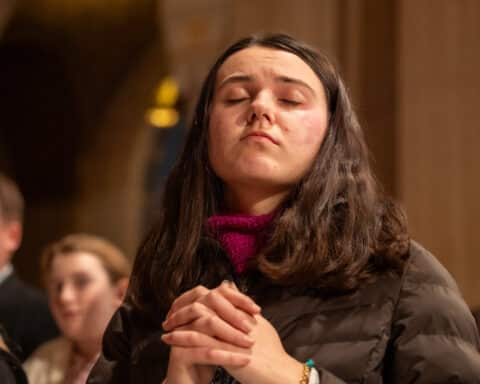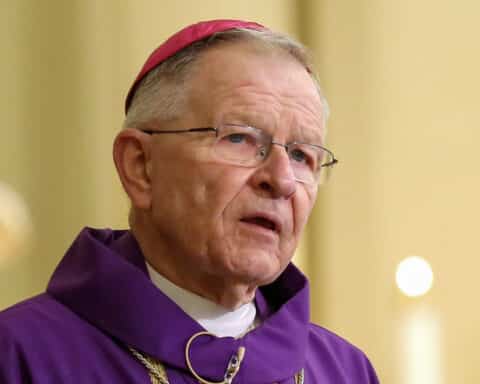
But what is sometimes overlooked is the specific context of that famous line — that of sacrifice. “Taking part in the Eucharistic sacrifice, which is the source and summit of the whole Christian life,” the line reads, “they (“the faithful”) offer the Divine Victim to God, and offer themselves along with It” (No. 11).
The intrinsically sacrificial nature of the Eucharist is reinforced, too, at the very start of the the Catechism of the Catholic Church’s section on the Eucharist, which states that we “participate with the whole community in the Lord’s own sacrifice by means of the Eucharist” (No. 1322).
In short, sacrifice is at the heart of the Eucharist, the source of our living. “The bread that I will give is my flesh for the life of the world” (Jn 6:51).
What does this mean for us? At the end of Mass, we often hear the familiar words “Go in peace, glorifying the Lord by your life.” It seems to me this instruction contains a blueprint for how to live Eucharistically, and therefore sacrificially. We give God glory in offering our lives as Christ did. This is to live as St. Paul, in his letter to the Romans, instructed Christians: “Offer your bodies as a living sacrifice, holy and pleasing to God, your spiritual worship” (12:1). Each one of us is called to live a life of sacrifice in imitation of Christ.
Not one of us is without the burden of our own crosses in life. In some way, we each know suffering and selflessness. But what we do with these realities is what defines our lives of discipleship. Jesus said to take up our cross and follow him. He also told us to lay down our lives for others.
When we offer our lives for God and others — joined through the Eucharist to the pattern of Christ’s sacrifice — our struggles, anxieties, fears, difficulties, pains and sufferings are all transformed and given their meaning and purpose. And Jesus’ sacrifice was rooted in love for others. He told us, “No one has greater love than this” (Jn 15:13). In short, “whoever wishes to save his life will lose it, but whoever loses his life for my sake will find it,” says the Lord (Mt 16:25).
In the Eucharistic sacrifice, where we encounter and receive Jesus Christ, we are conformed to the only way of life worth living and given the grace we need to sustain our efforts in doing so. The sacrament shows us how to offer our lives to God with Christ and draw from the source of all life as the means to gain life forever.
At Mass, we are drawn up into the sacrifice of the Lord who died to set us free. We lay down our very selves with him. Bread and wine are changed and transformed, but so too are our lives and sacrifices — into something good and life-giving.
As the late Cardinal Francis E. George, O.M.I. once said, “The freedom Christ gives us with himself in the Eucharist is more than freedom to do; it is also freedom to give ourselves totally, even to the point of self-sacrifice, as Christ gave himself to death on the cross.”
Like Jesus, if we accept and carry our crosses well — allowing the Eucharist to reveal what must be the heart and goal of our lives — then they will bring nothing but good things. By offering ourselves with Christ, we can transmit his abundant graces and blessings for others in their quest for conversion, sanctification and friendship with God. The Eucharist shows us how, by making a sacrifice of our lives — in union with Christ’s, we can carry God’s life to ourselves and others.
Michael R. Heinlein is author of “Glorifying Christ: The Life of Cardinal Francis E. George, O.M.I.” and currently in formation for the Association of Pauline Cooperators.





